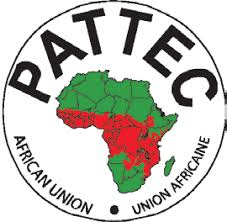African Union Development Agency-NEPAD (AUDA-NEPAD)
The mandate of AUDA-NEPAD is to: a) Coordinate and Execute priority regional and continental projects to promote regional integration towards the accelerated realisation of Agenda 2063; and b) Strengthen capacity of African Union Member States and regional bodies, advance knowledge-based advisory support, undertake the full range of resource mobilisation and serve as the continent’s technical interface with all Africa’s development stakeholders and development partners.

The Partnership for Aflatoxin Control in Africa (PACA)
The Partnership for Aflatoxin Control in Africa (PACA) is a collaboration that aims to protect crops, livestock, and people from the effects of aflatoxins. By combating these toxins, PACA will contribute to improving food security, health, and trade across the African continent.

The African Union Pan African Tsetse and Trypanosomiasis Eradication Campaign (AU-PATTEC)
The African Union Pan African Tsetse and Trypanosomiasis Eradication Campaign (AU-PATTEC) Office has the mandate of initiating, supporting and coordinating Tsetse and Trypanosomiais (T&T) eradication in Africa within the shortest time possible. The initiative comprises an international campaign to generate a process of sustained action through the introduction of the necessary support and mechanisms required for the eradication of the tsetse fly and trypanosomiasis from the affected countries. AU-IBAR works closely with AU-PATTEC in spearheading the fight against T&T especially through the International Scientific Council for Trypanosomiais Research and Control (ISCTRC) platform whose secretariat is at AU-IBAR.

Web Link Office International des Epizooties (OIE)
The Office International des Epizooties (OIE) was created through the international agreement in 1924 in recognition of the need to fight animal diseases at a global level. In May 2003 the Office became the World Organisation for Animal Health but kept its historical acronym OIE. The OIE is the intergovernmental organisation responsible for improving animal health worldwide and is recognised as a reference organisation by the World Trade Organization (WTO). In 2011 OIE had a total of 178 Member Countries. OIE has partnered with AU-IBAR for the implementation of PARC, PACE, SOLICEP, Vet-Gov, PAN-SPSO and IRCM.

